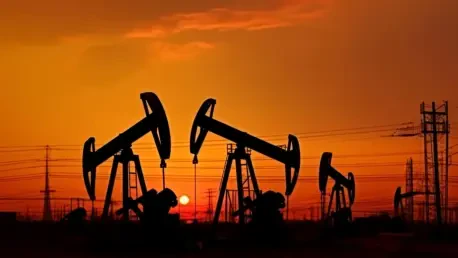The recent Israeli strike on Iran marks a pivotal moment with potentially far-reaching effects on global energy dynamics. Targeting the South Pars gas field, the largest of its kind globally, the attack represents a significant escalation in hostilities between Israel and Iran. Resulting in a significant fire, the strike led to the suspension of gas production in one unit of Phase 14, pausing the production of 12 million cubic meters of gas per day. This suspension not only heightens the tensions between these two nations but also presents immediate implications for the global energy supply. Iran, bound by sanctions, finds its ability to export severely restricted, adding pressure to its domestic energy use. Meanwhile, damage to this shared field, crucial for Qatar as it exports gas through partnerships with global giants like Exxon and Shell, adds another layer of complexity to international energy markets.
Geopolitical Tensions and Global Oil Prices
The Israeli aerial offensive comes amid broader efforts to counteract Iran’s nuclear capabilities, and it has intensified discussions on the region’s already fragile geopolitical framework. This attack on Iran’s energy infrastructure marks Israel’s first direct intervention in these sectors, representing a monumental shift in its strategic approach. The resulting uncertainty is palpable as markets react, evidenced by the substantial surge in global oil prices. The volatile landscape breeds concerns over possible disruptions in supply chains, which could ripple through international economies. Furthermore, this development underscores the intertwined nature of energy reliance among nations, exposing vulnerabilities that could shift the balance of power based on resource access and availability. As countries grapple with potential shortages and price hikes, the broader implications for international trade and energy policies warrant continued scrutiny.
Energy Dependency and Market Stability
The South Pars gas field in Iran, coupled with Qatar’s North Field, plays a crucial role in the global energy landscape, highlighting the ties between nations through energy resources. Despite sanctions affecting Iran, its dependence on domestic gas production for energy security is clear; any disturbances could worsen the economic pressures it faces. Meanwhile, Qatar must strategically handle the geopolitical challenges arising from its gas exports to sustain stable relationships with energy-consuming partners. As worldwide markets adjust to these changes, it’s vital to weigh immediate reactions against long-term plans. The importance of these gas fields is immense, affecting everything from market rates to international relations. Going forward, flexible approaches and collaboration among nations and industries involved are essential to tackle issues, reduce risks, and enhance energy stability in a swiftly changing environment. Adaptation and cooperation will be key to managing the challenges dictated by these pivotal energy resources.









